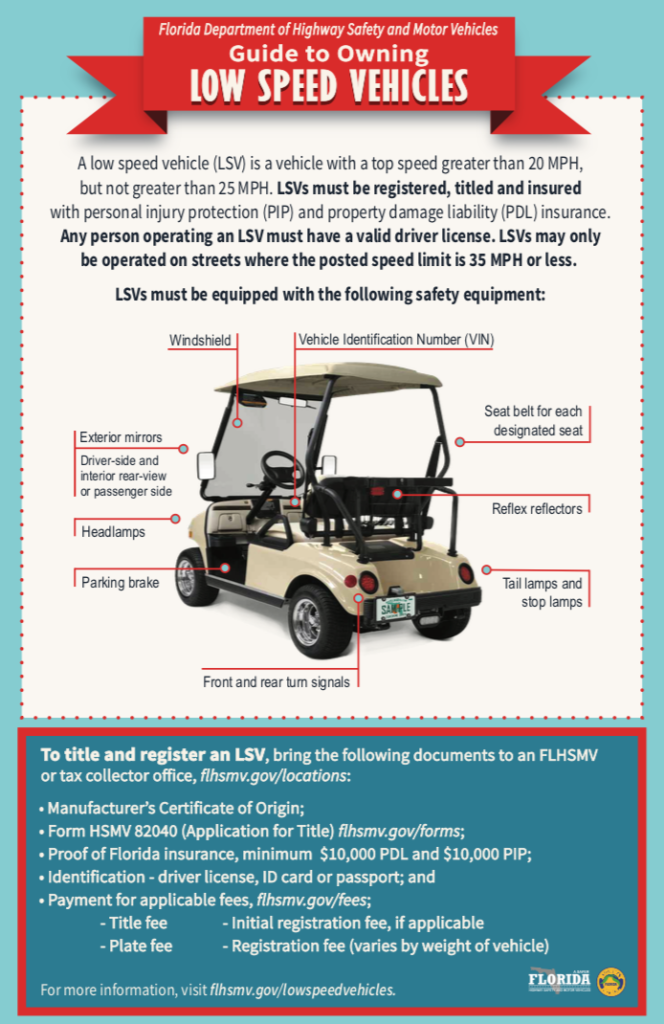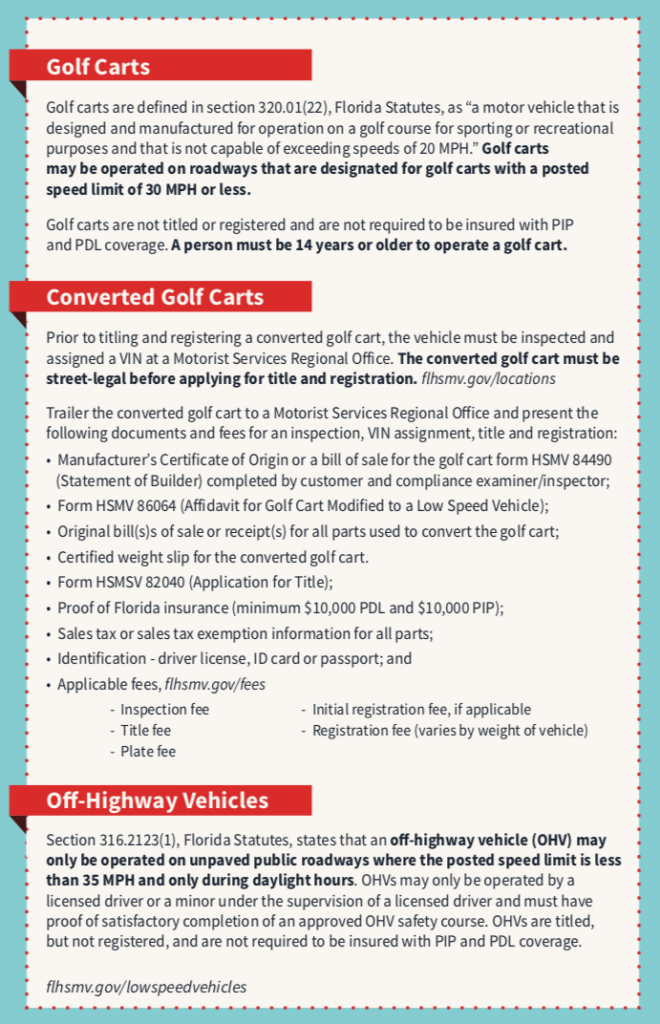Low speed vehicles (LSV) and golf carts are a great way to enjoy local communities and natural spaces. It is important that consumers understand the differences between LSVs and golf carts, the traffic laws applying to these vehicles, and the regulations regarding registration, titling and insurance.
Low Speed Vehicles Section 320.01(41), Florida Statutes, defines LSVs as “any four-wheeled vehicle whose top speed is greater than 20 miles per hour, but not greater than 25 miles per hour.” LSVs must be registered, titled and insured with personal injury protection (PIP) and property damage liability (PDL) insurance. Any person operating an LSV must have a valid driver license in their immediate possession.
Golf carts are defined in section 320.01(22), Florida Statutes, as “a motor vehicle that is designed and manufactured for operation on a golf course for sporting or recreational purposes and that is not capable of exceeding speeds of 20 miles per hour.” Golf carts may be operated on roadways that are designated for golf carts with a posted speed limit of 30 mph or less.
Golf carts are not required to be titled or registered and, therefore, are not required to be insured with PIP and PDL insurance coverage. Golf cart operators are not required to have a driver license; however, to operate a golf cart on designated public roadways, a person must be 14 years or older.
Contact us today to get your quote on a Low Speed Vehicle 321-727-0951


Please see the Florida Highway Safety and Motor Vehicles for complete info.